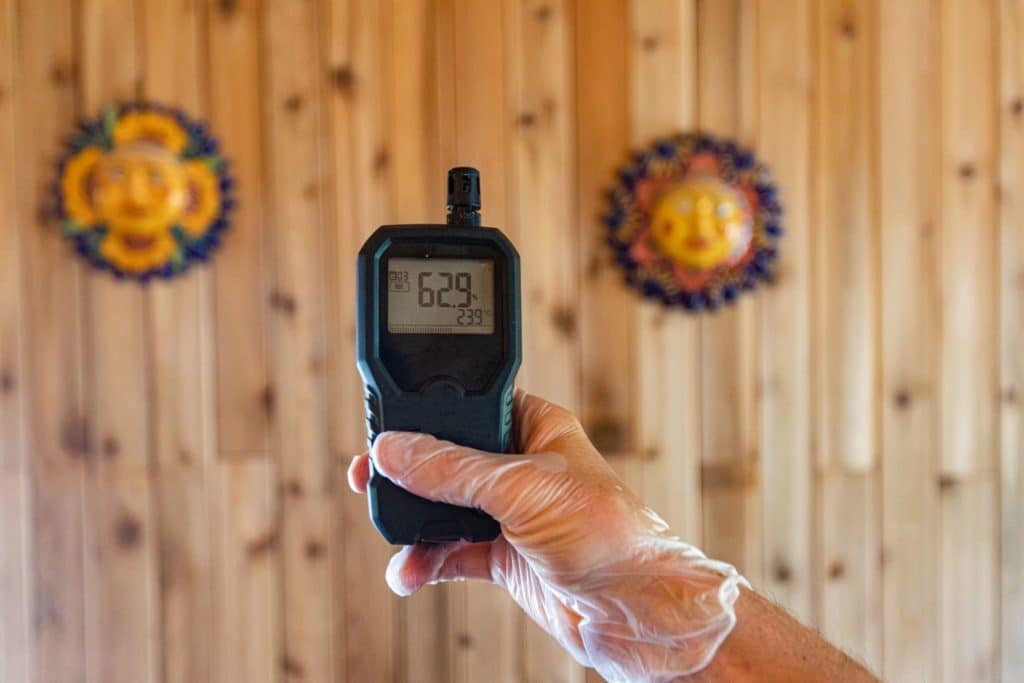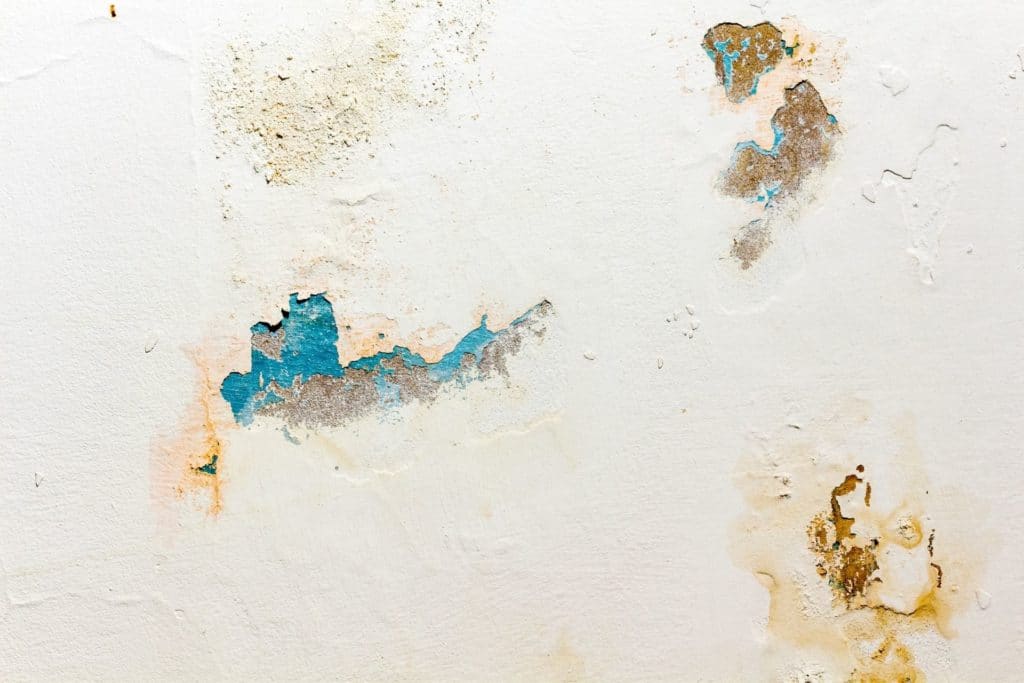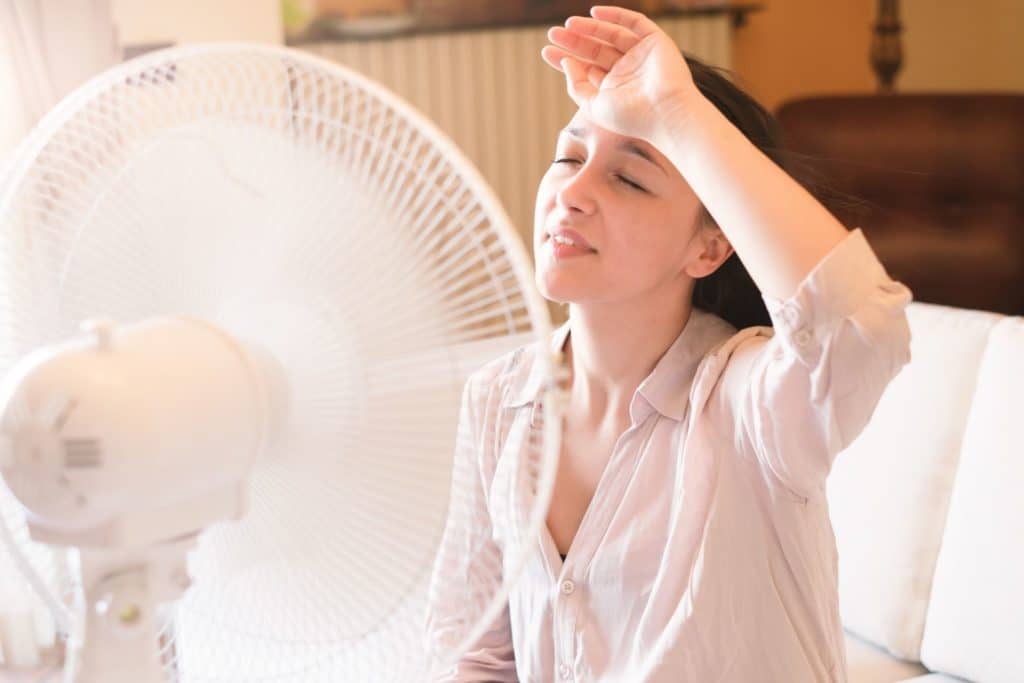What is the Ideal Indoor Humidity Level for Your Family?
- What’s a “Normal” Humidity Level for a Home?
- Signs That Your Home Humidity Levels Aren’t Right
- What Happens When There’s Too Much Humidity?
- Why Are Too-Low Humidity Levels Also a Problem?
- Home Humidity and Air Toxins
- How Can I Promote Proper Humidity Levels in My Home?
- Learn More About Your Home’s Humidity Levels Today

It doesn’t matter if you live in far northern Canada or in the deep South – humidity affects homes and families everywhere. In fact, improper humidity levels can have a big impact on people’s health, their comfort, and the overall well-being of their homes.
Humidity levels reflect the amount of water vapor in the air. When temperatures go up, the air is able to hold more moisture, and humidity levels increase. When temperatures drop, the air cannot hold water as easily, and humidity levels fall.
In many parts of Canada, our temperatures can fluctuate pretty dramatically between seasons. In fact, we had some of our most extreme heatwaves ever on record over the past summer, and yet we know we’ll face another frigid winter. Therefore, we all need to actively manage our humidity levels.
Let’s talk about ideal humidity levels, as well as how humidity can affect your family and ways to prevent levels from dropping or increasing too much.
What’s a “Normal” Humidity Level for a Home?

You can’t exactly see moisture in the air, but that doesn’t mean it’s not there. The best way to measure humidity in your home is to purchase an indoor thermometer that can read moisture levels.
According to the Canadian government website, the ideal humidity levels in the winter are around 30 percent. In the summer, it’s okay to let them climb as high as 55 percent. Generally, those percentages are your two endcaps – anything outside that range is considered abnormal.
Signs That Your Home Humidity Levels Aren’t Right

Reading an indoor thermometer or humidity gauge isn’t the only way to notice if your levels are off. You may also notice that:
- There’s an excess amount of condensation on your windows.
- You’re not sleeping well at night and sometimes wake sweaty or with an irritated throat.
- Water stains or mold spots frequently appear inside.
- You often feel covered in sweat while inside, even though the temperature is normal.
- The air feels stuffy, even when the air conditioning or fans are on.
- You or a loved one is having difficulty breathing (humidity is closely correlated with asthma symptoms).
Don’t ignore any of these signs, especially if they’ve been appearing regularly. A humidity problem can easily be fixed, so your family shouldn’t feel uncomfortable or experience poor health.
What Happens When There’s Too Much Humidity?

In the summer, you may notice that your body struggles to maintain a comfortable temperature inside if the humidity levels are too high. Not only will you be uncomfortable, but you could start to feel physically sick.
High moisture levels often contribute to the growth of fungus, mold, and dust mites in your home. These can increase asthma symptoms, as well as cause allergies and illness. Furthermore, mold and mildew remediation services don’t come cheap.
If you let the high-humidity problem get out of hand, you could wind up facing expensive repairs for furniture and your home.
Why Are Too-Low Humidity Levels Also a Problem?

Many Canadians struggle with dry air during the winter when moisture levels drop. Low humidity can lead to sore throats, itchy skin, and dry mucous membranes. Perhaps that’s why so many of us experienced cracked lips and knuckles around the winter holidays.
Overly dry air can also increase coughing, wheezing, and other breathing difficulties, especially in people who are already susceptible to asthma and lung problems. If your family frequently deals with respiratory problems during the winter months, humidity could be a big contributing factor.
Low humidity levels are also bad for your home. They can cause wooden door frames and molding to crack and shrink, which then leads to separation and creaking.
Home Humidity and Air Toxins
Out-of-whack humidity levels can also increase the number of harmful/toxic chemicals in your home, compromising the air quality. It’s not uncommon for bacteria and viruses to spread more in places that have extremely low or high humidity levels.
To keep your family safe, especially with COVID-19 still affecting millions of people, you’ll need to pay attention to the impact of humidity on your home’s indoor air quality. We should all be doing our parts to prevent the spread of illness and keep one another healthy.
How Can I Promote Proper Humidity Levels in My Home?
Now it’s time to talk about methods for maintaining optimal humidity levels in your home.
One of our first suggestions is to actually use your range hood and bathroom fans on a regular basis – maybe even daily. This will help disperse moisture that appears when you’re cooking, cleaning, and showering/bathing, especially during the summer months.

Running your air conditioner during the summer can also help lower high humidity levels. Although the majority of Canadian homes (roughly 60 percent) have some form of air conditioning, there are still many households that do not have AC. In that case, running fans can help reduce moisture levels somewhat.
During the winter, when humidity levels drop dramatically, your best bet is to increase air circulation within your homes. Obviously, you won’t want to run the AC when it’s freezing outside, but you can use an air exchanger (HRV or ERV) to keep things moving.
If low humidity is really a problem in your house when it’s cold, you may want to purchase a portable humidifier that can be placed in the rooms with the most moisture.
Learn More About Your Home’s Humidity Levels Today
Air Labs has been serving Canadian families for years, promoting better air quality throughout the Montreal, Laval, and Southern Quebec communities. Our goal is to help homeowners understand their air quality levels, as well as prevent the spread of toxins and germs.
If you suspect that your home’s indoor air quality or humidity levels aren’t where they should be, reach out to our team. You can send us a message online or call 514-341-0000. We’ll send experts out to your property to assess the situation and make recommendations for improvement.





